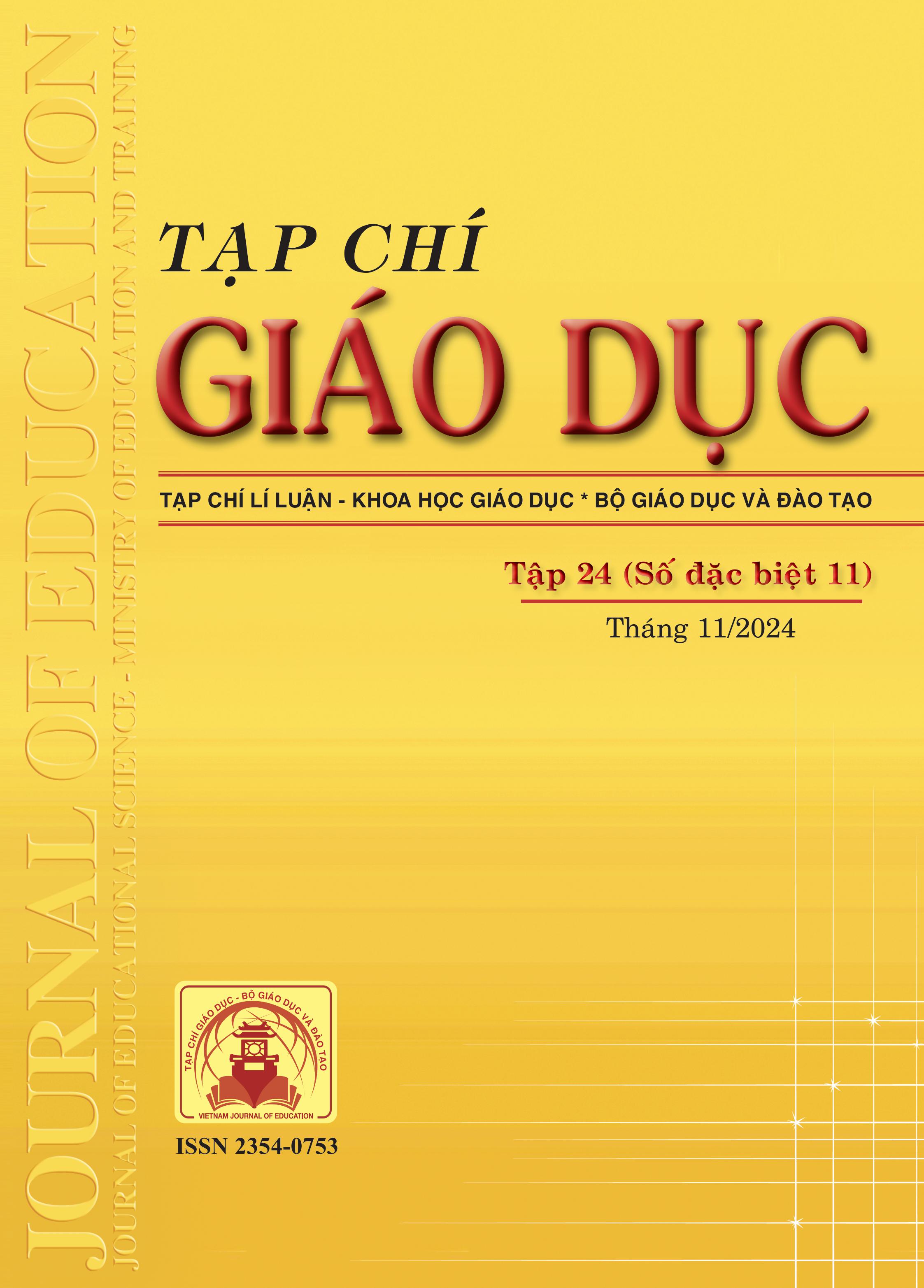Vận dụng mô hình CDIO trong thiết kế bài học STEM
Tóm tắt
In the context of the increasing emphasis and strong development of STEM education, the search for effective and appropriate teaching methods and models becomes urgent. The CDIO model has been successfully applied in engineering education and has the potential for application in STEM lesson design. This study was conducted to explore the feasibility of applying the CDIO model in designing STEM lessons, contributing to improving the quality of STEM teaching and learning. The study indicates that the CDIO model can be effectively applied in STEM lesson design. The Conceive, Design, Implement, and Operate stages of the CDIO model are compatible with the STEM lesson design process. The research results open up a new approach to STEM lesson design, contributing to the innovation of teaching methods and improving the quality of STEM education. The application of the CDIO model in STEM lesson design needs to be further researched and widely implemented, and it requires support and investment from educational management levels.
Tài liệu tham khảo
Berggren, K. F., Brodeur, D., Crawley, E. F., Ingemarsson, I., Litant, W. T., Malmqvist, J., & Östlund, S. (2003). CDIO: An international initiative for reforming engineering education. World Transactions on Engineering and Technology Education, 2(1), 49-52.
Bộ GD-ĐT (2018). Chương trình giáo dục phổ thông - Chương trình tổng thể (ban hành kèm theo Thông tư số 32/2018/TT-BGDĐT ngày 26/12/2018 của Bộ trưởng Bộ GD-ĐT).
Bộ GD-ĐT (2020). Công văn số 3089/BGDĐT-GDTrH ngày 14/8/2020 về triển khai giáo dục STEM trong giáo dục trung học.
Bộ GD-ĐT (2023a). Công văn số 909/BGDĐT-GDTH ngày 08/3/2023 về triển khai giáo dục STEM trong giáo dục tiểu học.
Bộ GD-ĐT (2023b). Báo cáo tổng kết triển khai thực hiện thí điểm giáo dục STEM cấp Tiểu học theo Chương trình giáo dục phổ thông 2018.
Bùi Văn Hồng, Phan Nguyễn Trúc Phương, Nguyễn Quốc Tiệp (2023). Thực trạng dạy học STEM cho học sinh trung học phổ thông tại Thành phố Hồ Chí Minh. Tạp chí Giáo dục, 23(3), 31-35.
Chuchalin, A. (2020). Evolution of the CDIO approach: BEng, MSc, and PhD level. European Journal of Engineering Education, 45(1), 103-112. https://doi.org/10.1080/03043797.2017.1422694
Crawley, E. F., Malmqvist, J., Östlund, S., Brodeur, D. R., & Edström, K. (2014). Rethinking engineering education: The CDIO approach (2nd ed.). Springer International Publishing. https://doi.org/10.1007/978-3-319-05561-9
Edström, K., & Kolmos, A. (2014). PBL and CDIO: Complementary models for engineering education development. European Journal of Engineering Education, 39(5), 539-555. https://doi.org/10.1080/03043797.2014.895703
Gunnarsson, S., Wiklund, I., Svensson, T., Kindgren, A., & Granath, S. (2007, June). Large scale use of the CDIO Syllabus in formulation of program and course goals. In 3rd International CDIO Conference, Cambridge, Mass., USA (pp. 15-18).
Kelley, T. R., & Knowles, J. G. (2016). A conceptual framework for integrated STEM education. International Journal of STEM Education, 3(1), 1-11. https://doi.org/10.1186/s40594-016-0046-z
Kennedy, T. J., & Odell, M. R. (2014). Engaging students in STEM education. Science Education International, 25(3), 246-258.
Lê Huy Hoàng (2021). Giáo dục STEM trong Chương trình giáo dục phổ thông 2018: Định hướng và tổ chức thực hiện. Tạp chí Giáo dục, 516, 1-6.
Malmqvist, J., Hugo, R., & Kjellberg, M. (2015). A survey of CDIO implementation globally-effects on educational quality. In Proceedings of the 11th international CDIO conference (No. 12, pp. 1-17).
Malmqvist, J., Ostlund, S., & Edstrom, K. (2006). Using integrated programme descriptions to support a CDIO programme design process. World Transactions on Engineering and Technology Education, 5(2), 259-262.
Nguyễn Minh Anh Tuấn (2023). Thực trạng triển khai giáo dục STEM tại các trường trung học phổ thông trên địa bàn tỉnh Tuyên Quang hiện nay. Tạp chí Giáo dục, 23(12), 53-58.
Stohlmann, M., Moore, T. J., & Roehrig, G. H. (2012). Considerations for teaching integrated STEM education. Journal of Pre-College Engineering Education Research (J-PEER), 2(1), 4. https://doi.org/10.5703/ 1288284314653
Đã Xuất bản
Cách trích dẫn
Số
Chuyên mục
Giấy phép

Tác phẩm này được cấp phép theo Ghi nhận tác giả của Creative Commons Giấy phép quốc tế 4.0 .












